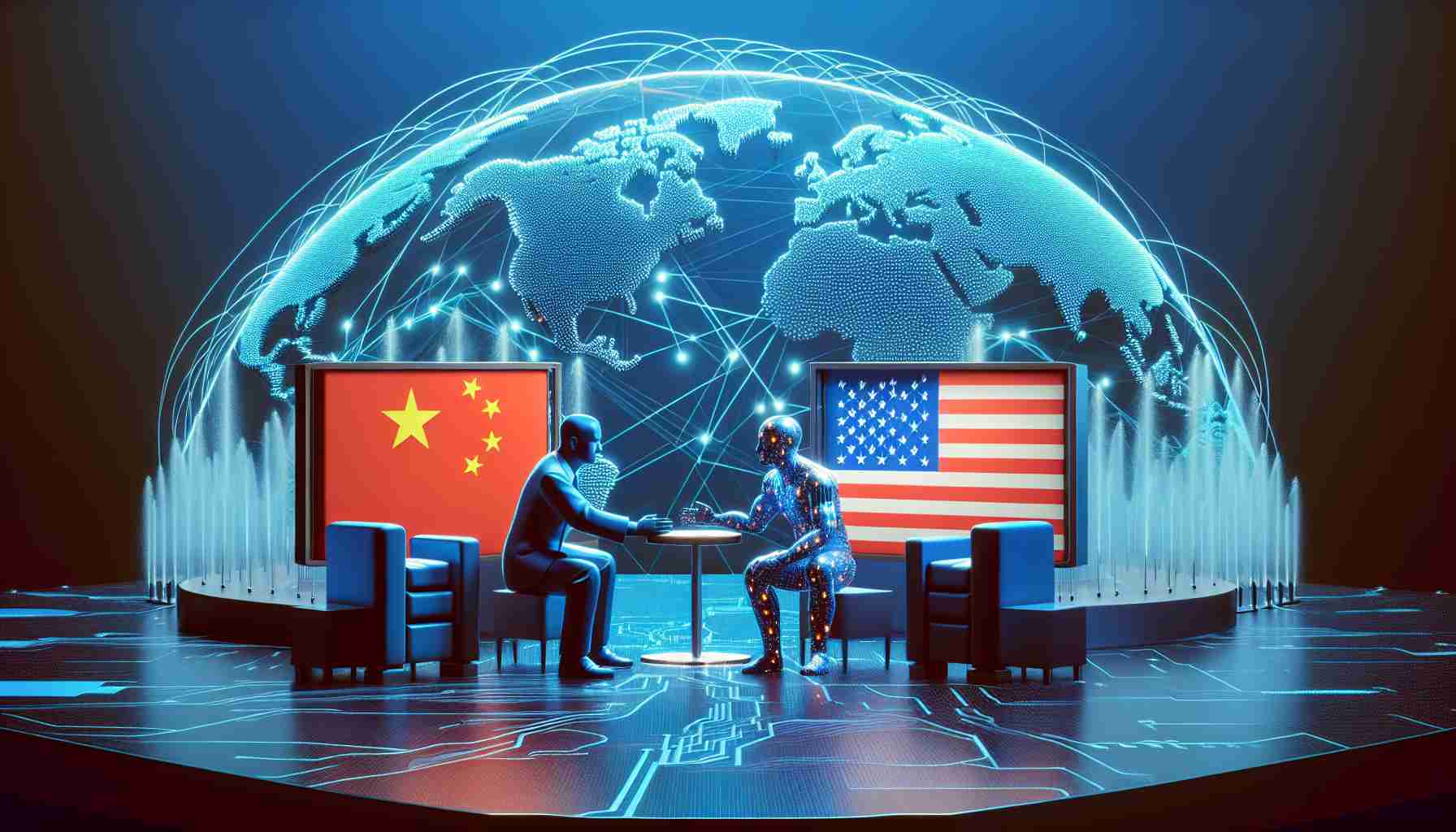U.S. and Chinese Officials Debate AI’s Future Regulations
In a groundbreaking move, officials from the United States and China gathered in Geneva, Switzerland on May 14th to hold their first ever government-to-government dialogue focused on artificial intelligence (AI). During this historic meeting, discussions unfolded around the management of risks associated with AI usage and the creation of international norms to govern this rapidly evolving technology. This milestone meeting was publicized by the Chinese Ministry of Foreign Affairs.
By coming together, the two world powers signaled a commitment to engage in constructive conversations about the ways in which AI can be regulated on a global scale. This meeting’s focus on risk management and norm-setting underscores the international community’s recognition of the profound impact artificial intelligence will have on the future of global politics, economy, and society. By tackling these complex issues head-on, the U.S. and China are taking critical steps toward establishing frameworks that could ensure AI is developed and utilized responsibly. This dialogue represents not just a bilateral effort, but a cornerstone for potential multilateral cooperation in the field of artificial intelligence.
The historic meeting between U.S. and Chinese officials in Geneva on AI governance raises several important questions and highlights key challenges and controversies in the field of artificial intelligence. Here are some of them:
Key Questions:
1. What are the specific AI risks both countries are concerned with mitigating?
2. How will the U.S. and China reconcile their differing approaches to data privacy, human rights, and technology controls in creating common regulations?
3. What will be the role of other countries and international organizations in shaping these international AI norms?
Key Challenges and Controversies:
– Balancing technological innovation with ethical considerations and regulation is a major challenge. There is a fine line between fostering AI development to benefit economic growth and ensuring the technology does not cause harm or jeopardize human rights.
– Reconciling different political ideologies and policy approaches between the U.S. and China is controversial. While the U.S. may emphasize individual privacy and democratic values, China’s approach to AI governance includes stricter government oversight and control.
– Intellectual property and cybersecurity are contentious areas. Sharing AI-related knowledge between nations can foster collaboration but also raises concerns about protecting intellectual property and securing sensitive technology from potential cyber threats.
Advantages and Disadvantages:
Advantages of this bilateral dialogue include the potential to harmonize AI policies, thereby reducing international tensions and fostering global cooperation. It could also lead to more robust and comprehensive approaches to managing AI risks and ensuring responsible usage of AI technologies.
Disadvantages could stem from potential compromises that might need to be made, possibly diluting the strength of regulations. There’s also a risk that the negotiations will not fully address or resolve critical issues due to the vastly differing sociopolitical systems and interests.
As for related credible sources, the main domains that could be suggested for more information on this topic are:
– United Nations (for information on international efforts in AI governance): United Nations
– IEEE (Institute of Electrical and Electronics Engineers, for professional and technical standards on AI): IEEE
– OECD (Organisation for Economic Co-operation and Development, for policies on AI that promote economic growth): OECD
– World Economic Forum (for insights on AI impact on economy and society): World Economic Forum
These global conversations about AI governance are critical in today’s digital age, where AI’s influence continues to grow across all sectors of society. The outcomes of the U.S. and China negotiations could set a precedent for future international collaborations and regulatory frameworks for AI.
The source of the article is from the blog maestropasta.cz

